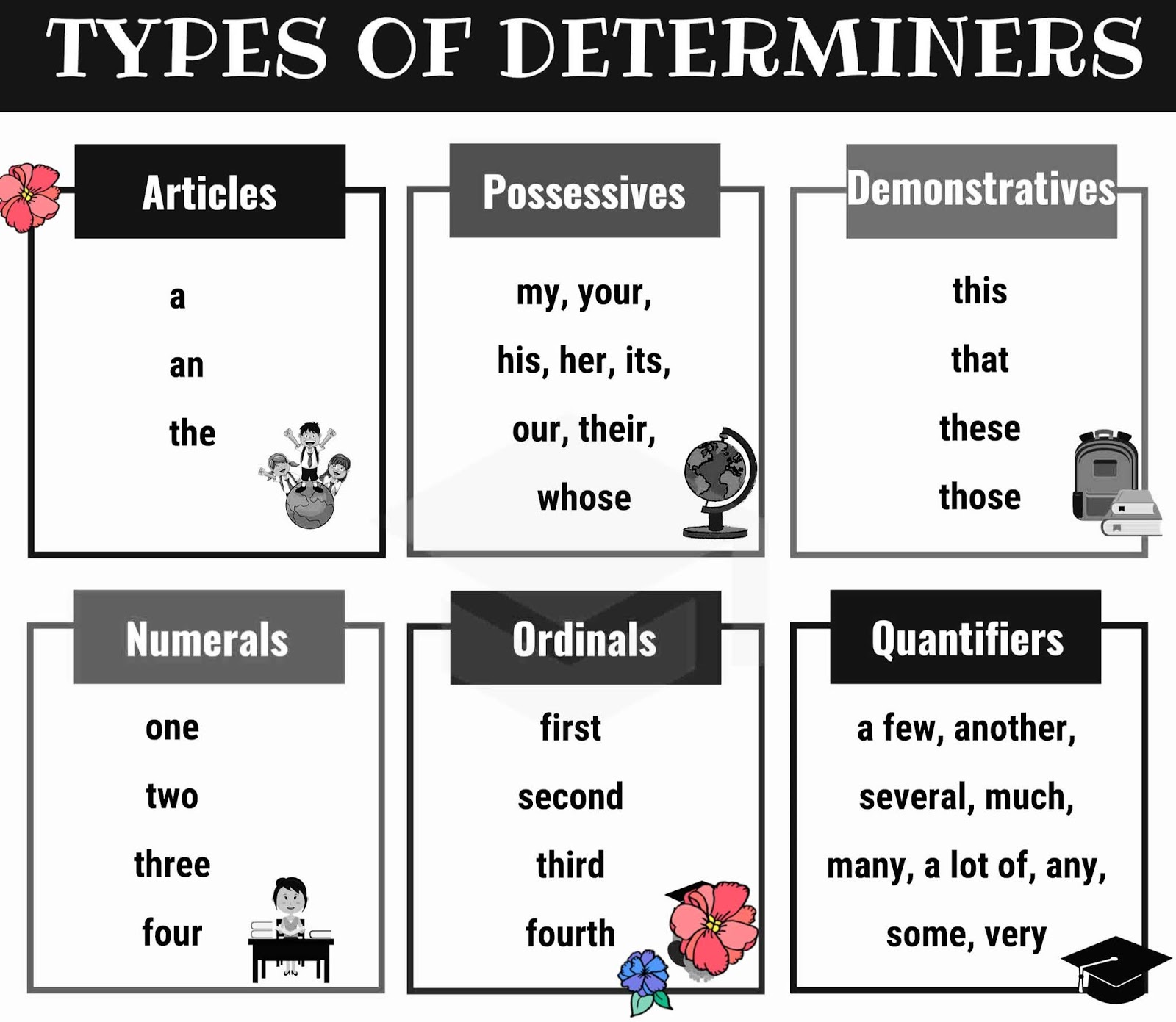
Tip: Make up a phrase or a sentence with the word in front of a noun. Quantifiers ( many, much, more, most, some etc).Demonstratives ( this, that, these, those).Articles (indefinite article: a/an, definite article: the).Strictly speaking, an article is just one kind of ‘determiner’, a word that introduces a noun: ArticleĪn article is a word that introduces a noun, ie a, an or the. If it makes sense, it’s probably a pronoun, eg _ looked at the wall. Tip: Make up a phrase or a sentence with a verb after the word (but without ‘the’ or ‘a’ in front of it). relative pronoun: a word that ‘relates’ to the subject just mentioned, eg who, that, which.possessive pronoun: a word that shows the owner of an object, eg his, their.personal pronoun: a word that shows a person or thing, eg he, she, them.PronounĪ pronoun is a word that stands in for a noun If it makes sense, it’s probably a verb, eg He _ it or He _ in the garden. Tip: Make up a phrase or a sentence putting the word after a pronoun such as ‘he’. VerbĪ verb is a doing word, eg jumped, was, pays If it makes sense, it’s probably an adjective, eg The _ book lay on the table. Tip: Make up a phrase or a sentence putting the word between ‘the’ and a noun. AdjectiveĪn adjective is a word that describes a noun or pronoun, eg green or young If it makes sense, it’s probably a noun, eg He looked at the _. Tip: Make up a phrase or a sentence with ‘the’ in front of the word. collective noun: the name of a group of animals, eg herd or flock.


proper noun: the name of a person, place etc, eg Nick, London.common (or concrete) noun: a word for a thing or object, eg table.abstract noun: a word to describe an idea, eg peace.NounĪ noun is a word for a person, place or thing Sometimes, there’s a clue in the way they sound, eg adverbs describe verbs, pronoun sounds like noun, preposition contains the word position and a conjunction is the ‘junction’ between two sentences. If you struggle to remember what they all mean, think about the words themselves. Just watch out for words such as ‘jump’, which can be more than one part of speech! This is just a fancy term for all the different kinds of words, but they’re worth knowing just in case. When is a verb not a verb? When it’s a part of speech.Įnglish exams often ask questions about the ‘parts of speech’.


 0 kommentar(er)
0 kommentar(er)
